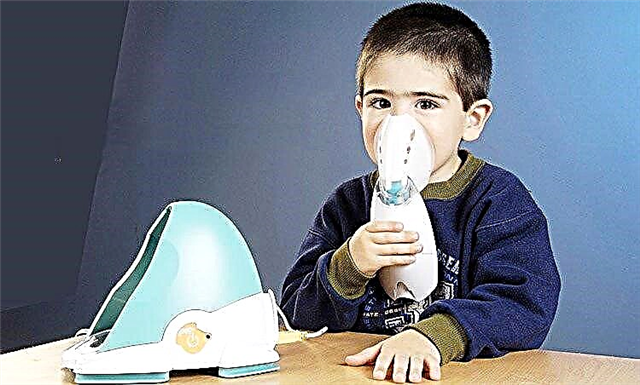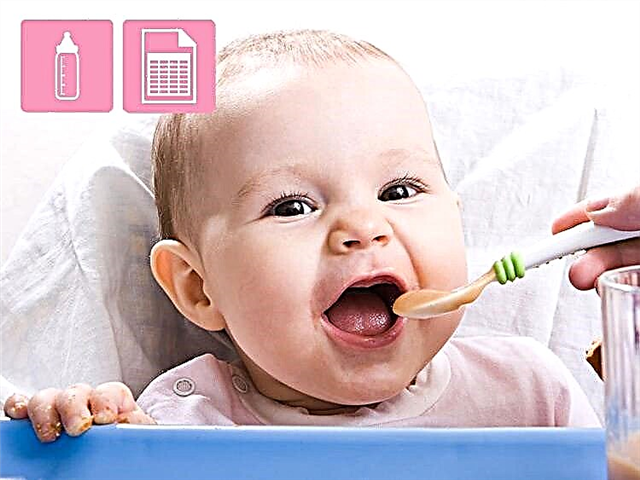
Almost all parents in one way or another are faced with such a problem as hair loss in an infant. In this regard, many questions arise, because any mother wants the baby to grow up healthy.
Why is this happening?
In a newborn baby, hair has a very fine structure. They are more like fluff, and it is quite natural that this fluff begins to be replaced by a normal dense hairline. This happens for about 3 months. Hair loss at this age should not be embarrassing, strong and strong real hair will soon appear in their place.
It is important to assess where the hair loss occurs. On the back of the head, a receding hairline for many years was qualified by doctors as a sign of rickets in babies. But recent studies have not found a strong link between rickets and nape baldness. The back of the head can go bald without rickets. And in most cases, this is exactly what happens. The reason lies in the banal wiping of the vellus hair on the diaper, pillow, because the baby spends most of his life lying down.

Child health experts claim that in addition to the natural change of vellus hair, the emotional background also affects the loss of children's hair - birth is a great stress for a child and it takes him a lot of time to adapt to new living conditions, different from the usual intrauterine environment.
Excessive grooming can also cause hair loss - too frequent washing of the baby's head with detergents. Even harmless baby soap, with frequent use, destroys the natural lipid layer on the hair, which is necessary to protect the hair from the influence of environmental factors, which ultimately leads to thinning and injury of the hair shaft.
It is believed that the structure of baby hair is formed up to 4-5 years. And therefore, moderate hair loss in the first year of life should not frighten parents at all. But there is also pathological baldness, which cannot be ignored.


When is baldness considered normal?
As already mentioned, up to three months of age, hair loss is physiological in nature, their change occurs almost imperceptibly. In a newborn, thin hairs may fall out on the head after combing, changing a hat, bathing. Then the receding hairline described above may appear on the back of the head.
In order not to worry about rickets, parents need to consult a pediatrician.
There is no need to hide your fears and doubts about the condition of children's hair from the doctor. In almost 95% of cases in infancy, hair falls out for physiological reasons, and there is nothing wrong with that. In addition to hair changes, hormonal changes can also be named among the natural causes. In the womb, the baby received a large amount of maternal sex hormones, after birth it is exclusively on its own hormonal supply, which is partly due to the weakness of the hairline. This situation does not need treatment. When the body of the baby adapts to the new conditions of existence, hair growth and their natural change will enter into a certain rhythm, and the loss will stop.
Another completely natural cause of baby hair loss is overheating of the head. The head sweats in babies one of the first, and therefore problems with hairs begin most often in children, whose parents try to constantly keep the child in warm caps.
If the cap is removed and the head is allowed to “breathe” freely, the loss usually stops and is limited by the physiological hair change.

When is it worth worrying?
Under no circumstances should you worry. Even the pathological causes of hair loss must be corrected, and the mother does not need to panic, but together with the doctor, treat the baby.
Hair loss with large receding patches, patches can be a sign of infant alopecia. In this case, the hair falls out strongly, in foci or totally, often over the entire area of the head, remaining only on the sides, and even then in a small amount. The bald patches are even, smooth, not prone to flaking. In this case, you cannot do without medical help, because alopecia can have many different reasons:
- autoimmune diseases, in which hair follicles in an infant are perceived as hostile by the cells of the immune system and are destroyed;
- hormonal imbalance, thyroid disorders;
- fungal diseases of the scalp, ringworm;
- long-term use of antibiotics or vitamins in large quantities.


Hair follicles can be mechanically injured. They are located very close to the epidermis in a child under 3 months old, and even combing the hairs too hard in a child can cause hair loss.
It is impossible not to consider rickets, in which baldness of the occiput is just one of the clinical signs. Mothers should clearly understand that no one has the right to make such a diagnosis based on a receding hairline. Rickets must be confirmed by X-ray examination of the bones.
It is very important to carefully assess the associated symptoms. If the hair just falls out and the child behaves cheerfully, develops according to age, eats well, sleeps, then you should not look for diseases where they do not exist.
With the same rickets, for example, both a 4-month-old and a 6-month-old child experience increased sweating, poor appetite, and constipation. When contacting your doctor, be sure to indicate exactly what additional symptoms you have noticed. This will help to quickly and correctly diagnose, if any.

Treatment
Physiological causes of loss, described above, do not need treatment. Hair growth resumes on its own. As for the pathological reasons, then the reason for this is of great importance. Fungal lesions are treated with antifungal drugs, and with alopecia areata, hormonal agents can be shown locally in the form of an ointment and physiotherapy.
You need to understand that pathological baldness is treated for a long time. From parents, therapy will require diligence, attention and great patience. Doctors will definitely determine if the infant has a vitamin deficiency. After that, a multivitamin preparation will be recommended to eliminate the lack of nutrients.
Hormonal agents are recommended only for children who have total baldness.
It is important to understand the state of the digestive organs. Very often, it is the disorder of the pancreas or stomach that causes hair loss. In this case, the child is examined and treated by a pediatric gastroenterologist.

Among the folk remedies that parents can use with the permission of the pediatrician are onions and garlic. A gruel is prepared from the onion, which is applied to the scalp for 10 minutes, sometimes garlic is added to the gruel. This causes local irritation of the skin, increases blood flow to the hair follicles.
It is permissible to use burdock, castor, olive oil for children's hair. You can rinse baby hair with a decoction of burdock root, and also use raw chicken yolks to wash the head.
But it should be understood that the use of any home remedy requires mandatory prior consultation with a pediatrician. Some of the herbal ingredients in unconventional recipes can cause serious allergies in the baby.
If the child is prescribed medication, you should not abandon it in favor of folk medicine, it cannot replace traditional therapy, but it can supplement it if the attending physician does not mind.
In most cases, the problem of alopecia in early childhood is solved safely. There are not so many cases of baldness in infants with total follicle death. This is usually hereditary, genetic alopecia, in which treatment, in fact, is powerless. When the baby grows up, it will be possible to discuss hair transplantation with the trichologist.
In all other cases, it is almost always possible to cope with the problem of hair loss up to 1.5 years. At the same time, most of the children do not need any treatment, everything goes away on their own, and new hairs grow quickly.

It is always much easier to prevent hair loss in babies than to treat it later. To do this, immediately after discharge from the hospital due attention should be paid to prevention issues.
It is impossible to prevent the physiological loss of baby hairs, since this process is natural and necessary. But parents can easily avoid pathological reasons.
If a child has problems with the stomach, thyroid gland, in the very first months of life, you must carefully follow all the doctor's recommendations, take the baby to a specialist for examination on time.
Breast milk is considered the best nutrition that allows you to give your baby all the necessary vitamins and minerals for growth and development; even the best adapted milk formulas cannot replace it. According to statistics, alopecia often develops in children without breastfeeding.

You should not wash your baby's hair too often with special detergents, even if they are baby, hypoallergenic and adapted for babies in the first months of life. Of course, you need to bathe your child every day, but you need to wash his head with soap or shampoo no more than once a week. When choosing children's products, you need to carefully read the composition of the product - it should be as natural as possible. It is strictly forbidden to wash hair for children of the first year of life with adult detergents.
If the baby is prone to constipation, it is important to provide him with the right help on time. If you notice that the baby has baldness, the hair is climbing strongly, in clumps, it is important not to postpone the visit to the doctor. Alopecia totalis at an early age does not have the most favorable prognosis, and therefore it is important to start treatment as soon as possible.
Dr. Komarovsky tells about the causes of hair loss in children in the video below.



